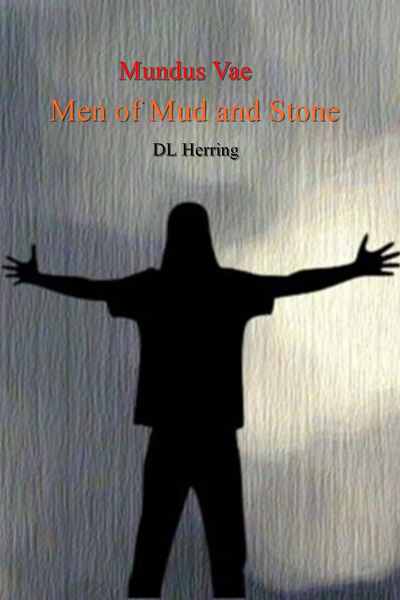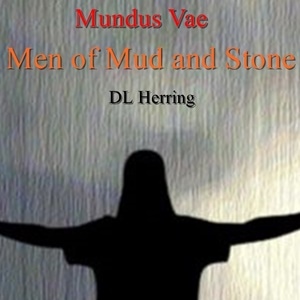I woke early and dressed in work clothes. I sat trimming my fingernails as the GM stood by the door. I had been going over a list of matters I wished to be addressed. Soon, my friends would wake, we would eat, then, we would fly away from my home of many revolutions. I felt as though I already missed my ship.
I said, “Keep a log; I'll review it later.”
The GM said, “Yes, son. Eyes on everything.”
The GM seemed dismissive. I dropped my scissors, stood, and examined its face. I said, “You needn't be cavalier. Father was never that way.”
The GM said, “You knew what he wanted you to know.”
I gaped, and a knock came to my door. “Open,” said I.
The door opened, and I saw my two friends standing side by side. Their faces were pleasantly wide awake as they gave an official nod. It amused me that they turned and gave a nod to the projected image.
“You're going in work clothes?” asked Barachiel.
I answered, “They're comfortable. Come in. I have food on the table.”
We ate a cold meal and made for the Taush. I turned at the bottom of the ramp and saw the GM standing in the sealed doorway. It waved goodbye. As I turned back, I noticed Barachiel happily answering the gesture. The star was just rising, but clouds in the east obscured its light. Barachiel put me in the seat nearest the door. I laid the bar over my lap, and Khamuel took us up.
Khamuel pushed the Taush toward their home. What would they show me? A small house of bricks away from the noisy settlement? Did they have a garden? They never said. Khamuel spoke from the cockpit.
“Should we show him?” he asked.
“It's the best part,” Barachiel said to Khamuel, and to me, he said, “There's a handle on the side of your seat. Push it forward, and you can turn your seat to the door.”
I pushed the handle and turned to the door. I felt the cool air coming in through the door as it slid up. I called back over my shoulder, “Are we there?”
“Look down,” said Barachiel over the roar.
I saw a vast grassland. The water of rivers and lakes glimmered in the early light. I had not expected such a panorama. It stretched into a distant mist. As we slowed and banked, I saw, not a settlement, but a sprawling city of mud and stone. We came close, and I saw a city divided by section.
Barachiel said, “They call the delta Aiypt. The city you see is Naqa. To the right are the brick fields. To the west and south are the quarries. You can't see them from here. The rest is farmland.”
Khamuel called to us. “Speaking of stone, it's our turn.”
I turned to face Barchiel. He answered the question in my eyes. “We made a deal with the indigenous people. They cut stones, and we carry them into the city. Come. Help me open the panel.” Barachiel knelt by a heavy plate on the floor. He said as I joined him, “We'll open the belly and drop the cables. Once attached, the GUF alters the weight of the stone.”
It was a happy moment for me to help my friends in their labor. As I understood the matter, we lifted a massive stone and set it atop a building project. I helped Barachiel return the heavy panel, and we landed. Dust rushed in on a blast of hot air. The roar of voices was the next thing I noticed, mixed with the clangor of tools.
Khamuel came from the cockpit and said to me, “Get ready for an earful.”
I followed my friends into absolute bedlam. Hundreds of men ran between their tasks. Great scaffolds were set against the project of stone, as heavy timbers swung from ropes to gently nudge the new stone into place. Taskmasters screamed in their language, and workers avoided the tip of cruel whips. A man raced toward us.
“You make me wait,” said the man in a clear but broken manner. “You make me crazy. It is my neck before the Menes.”
The man was dark-skinned, dressed in a sleeved gown and a sleeveless overcoat. He wore chains of beads and gold. His wrists were adorned with painted leather armbands, and he carried a rod in his right hand. There was paint on his face.
I leaned toward Barachiel and asked, “What's on his face?”
Barachiel answered with an apologetic shrug. “The men wear makeup,” said he.
Khamuel was ahead of me dealing with the dark man when Barachiel pulled me forward. Khamuel turned and extended a hand toward me. “Sadiki,” said Khamuel, “this is the man we spoke of. Our King.”
“A King in rags?” snapped Sadiki with a dismissive gesture. “Please! There is one King.” Sadiki turned to the hundreds of workers and called loudly. “Menes Ka.”
Throughout the broad work area, men stopped, carts were set down, and tools were set aside. At that moment, all of them, both dark and fair, dropped to their right knees and covered their heads with their arms. Sadiki turned to me with a smile of disdain. I was happy to be free from the crown, but I was suddenly and totally offended by the man's attitude.
I shifted behind Sadiki and spoke into his ear. “Bah!” I said.
Sadiki nearly jumped out of his skin. As he turned to see me behind him, he fell from his feet, landing hard. I asked, “Can your King do that?”
When Khamuel and Barachiel laughed aloud, Sadiki turned wounded eyes up to them. With evident indignation, he struggled to his feet and cast about with hasty eyes. Seeing that no one saw, he tugged at his overcoat, retrieved his rod with a strained grunt, and yelled at his workforce.
“Aimilohn!” he shouted. “Work!”
Sadiki stormed away as Khamuel and Barachiel gathered around me with hardy pats on my back. Both laughed happily, and Barachiel said, “That was a good one.”
“Oh, wait,” said Khamuel, turning to hail a passing worker. “Desamo,” Khamuel called loudly. “Come. See who we've brought.”
I remembered the name, and as the man dropped his wicker basket to trot over, I recognized the Axerri with the eyebrows of soft blue feathers. Desamo came close and looked first at my clothing. When he studied my face, recognition slowly dawned. Desamo sank to his knees and clasped his hands before him. I was suddenly embarrassed.
“Your Majesty,” said Desamo.
I quickly pulled him to his feet. “Don't do that,” I said. “I'm not a King anymore. Join us. I'm here to visit old friends.”
The place my friends called home was as simple as I had imagined, and yet, it had been constructed with great care. It was spacious and functional; it was open and airy. I ran my hand along the outer wall and could feel the work they put into it. Barachiel was the last from the Taush, and as he joined Khamuel and me by the courtyard entrance, he spoke in an irreverent manner.
“That was the brick that Khamuel made,” said he.
Judging by the expression on Khamuel's face, I enjoyed Barachiel's jest more than he did. Khamuel took back the conversation.
“As I was saying,” he said slowly for emphasis, “after the integration, they worked their way into the government of the Menes.” We walked into the cool interior and sat on plain benches. Khamuel continued in a relaxed manner. “The Axerri swayed the Menes toward a theocratic monarchy while the Huims favored a more aggressive colonialism.”
Khamuel paused while Barachiel placed a dish of grapes on the table before us. “It's really twisted,” said Barachiel as he joined us.
Khamuel said, “There was dissension between the Huims and Axerri. The Huims went out on raids and brought back slaves for the Menes, and that began to sway his thinking. They offered him advancements in metallurgy. They had better tools for the slaves and better weapons for the army.”
“Meanwhile,” said Barachiel, “the Axerri worked on the king's vanity. They posed as god's who could offer divine enlightenment; they magicked him with technology.”
Khamuel said, “It became such a madhouse in the king's court that the king had many of them killed. The rest, he demoted to his workforce.”
Barachiel added, “That's why Desamo couldn't come.”
Khamuel reached out and touched my arm to draw my attention from Barachiel. When I looked, he said, “The Huims took the ships, vowed revenge, and went north.”
I asked, “So, the Taush is the only ship left?”
Khamuel said, “There is one other. He lives apart, like we do, and made a similar agreement. He lives north of us where the river divides.”
I asked, “Why don't you live on the river?”
Barachiel answered. “Too many toothy monsters.”
Khamuel asked me, “What are your thoughts?”
I had paused to absorb the information. My friends had avoided a bad situation. I was not at all happy with the actions of the Huims and Axerri. I blinked into Khamuel's face as he awaited my reply. Then, I found my words.
“The people were not ready,” said I. “Too much too soon. Who pilots the other ship?”
“Tarmish,” said Barachiel. “He was a ship mechanic in the fleet.”
I said, “We should include him. We should try to undo the premature influence we've had on the indigenous.”
Khamuel said, “There is little to retrieve here. We can go now if you like.”
As I nodded, Barachiel stood and said. “We forgot to mention, but ours are not the only ships. The Oliphareans came once in pointy ships they called Vimana.”
Khamuel stood and added, “Don't forget the Akkadi ships. They trail smoke, but their weaponry is formidable.”
I stood and shook my head. “We've made a mess of things,” said I.
We came to the home of Tarmish; deep in the trees by a river. Vines overgrew the humble mud abode, and it was obvious that Tarmish gave it scant attention. However, as we returned to sunlight from a cursory inspection of the building, Tarmish landed a blue metal craft beside the Taush.
Barachiel ran and brought Tarmish to me. Tarmish immediately crossed his chest; I thought I would never see the end of that salute.
“Your Majesty,” said Tarmish.
“Never mind that,” I replied. “I'm no longer King. I think we've met. Your face seems familiar.”
“Indeed,” said Tarmish with a smile. “At the feast; you and Queen Imabelai.”
Khamuel took Tarmish by his shoulders and turned him. “We need to stop the colonials. Will you help?”
Tarmish turned and spat before he answered. “Slavers, if you ask me. They asked me to join them. I refused.” Tarmish turned from Khamuel to look into my eyes, and asked, “How may I help?”
I asked, “I need to speak with these colonials; do you know where they are?”
Tarmish answered. “They left after I refused to join them. They were going to the northern islands. The primitives have mines. The colonials seek iron and soldiers.”
“Can you lead us to the northern islands?” I asked.
“Gladly,” said Tarmish. “If we hurry, we may catch them on their way.”
Tarmish turned and walked to his ship. Barachiel ran to the Taush. Khamuel took my arm and pulled me from my thoughts. I turned to him as he spoke. “The colonials are not easily entreated,” said he.
We flew high, continents racing by beneath us. Tarmish flew ahead of us; I watched his ship through the cockpit windows, Barachiel standing by my side. Khamuel spoke without looking back.
To Barachiel, Khamuel said, “Barachiel, make sure we're secured.” Barachiel went quickly to the rear of the ship.
To me, Khamuel said, “The islands are ahead. I would feel better if you were seated.”
I answered, “I would speak to the colonials.”
Khamuel replied. “I can open a channel from your seat controls. I'll let you know when.”
Barachiel returned to stand behind Khamuel and look through the windows. He reported quietly, “All secure.”
Khamuel said, “Slowing.”
I sat in my seat watching my friends watch what I could not see. I wanted to see too. Barachiel gripped a small rail above the cockpit entrance as the Taush lurched to one side. The bar across my lap held me against the sudden change.
Khamuel called to the ship ahead of us. “Tarmish, position behind our ship. You are not armed.”
Barachiel said to Khamuel, “Is that them? This doesn't look good.”
Khamuel repeated his hail. “Tarmish, position behind our ship.”
I loosed the bar and stood beside Barachiel. As Tarmish maneuvered his ship slowly back and to our left, a silver ship, painted red and blue, approached from our right and opened fire. The ship ahead of us burst into flames.
“Ow!” said Barachiel. “They shot Tarmish.”
I could see the ship of Tarmish bank hard to the left; black smoke washed over the Taush and was gone. Below was a primitive city. It burned from one end to the other as five colonial ships bombarded the primitives from above. I only got a glimpse as I reached for the high hand rail.
“Tell me they're not attacking us,” said Barachiel, disbelief in his voice.
Suddenly, Khamuel called out, “Man the guns! Hang on!”
The Taush lurched promptly to the left. I was thrown savagely against the hull. Barachiel lost his grip and was thrown into the seats. I leaped to his aid and saw a deep gash in his forehead.
I locked Barachiel into a seat as I called to Khamuel in alarm, “Barachiel's hurt.”
“Man the guns,” Khamuel called back to me. “We need guns. Now.”
“How do I do it?” I called as I ran to the back.
Khamuel shouted his reply as the Taush bucked like a wild horse. “Strap in and say voice control.”
In the blink of an eye, I found myself squeezing into the tight space and strapping into the chair. Chemicals were flooding my body uncomfortably. I yelled, “Voice control.”
Immediately, the crown settled over my head, while all the screens came up. I saw the colonial ship swing through my view as Khamuel evaded fire,
“Could use a little help,” Khamuel yelled back.
I took a breath and said, “Weapons, lock and deliver.”
The Taush pitched wildly and I was thrown about in the seat while Khamuel's voice blasted through the crown, giving me a fright. “Manually, Jeez! Manually!”
I looked at the armrests and found a handle with a red button on top; I gripped it in my excitement and fired accidentally, missing the colonial ship. I used on-screen crosshairs to target the ship and fired again. As Khamuel made a sudden dive, I got a quick glimpse of the ships over the primitive settlement. I saw mud, logs, and burning rock walls. I also saw more ships than I expected. There were bright white ships among the silver colonial ships.
“I see Akkadi ships,” said Khamuel through the crown.
Having missed on my second shot, I lined up my sights and fired a third shot. The colonial ship exploded and banked right trailing smoke as it fell. The chemicals in my blood made me feel strange enough; I was trembling, but, my third shot was fired in anger. I tried to reason I was not murdering a fellow Huim so much as I was protecting my friends, but I still felt horrible.
Khamuel said, “The colonials are fighting the Akkadi below.”
The Taush banked and I got a better view of the scene below. Akkadi ships were round with scythe-like wings. They burned fuel that produced a trail of dark exhaust. There was a pitched battle just above the settlement, ships rolling and banking in fevered expectation of dominance. I saw a lone primitive run through a muddy trench seeking shelter, only to be lost in a spray of mud as an errant shot struck.
I asked Khamuel, “Can I speak to them?”
Khamuel answered, “Opening a channel.”
I hailed, “Colonial ships, withdraw. Akkadi ships, stand down.”











Comments (0)
See all